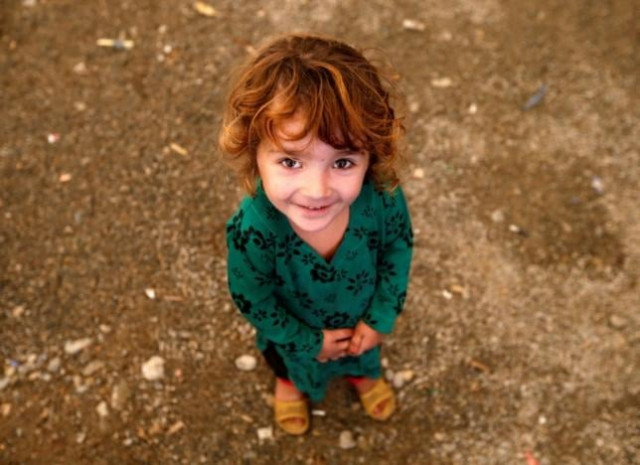Refugees: a collective problem
Increasing number of refugees is a collective problem that the world is not collectively sharing responsibility for

An Afghan refugee girl returning from Pakistan looks on after she arrives at a United Nations High Commissioner for Refugees (UNHCR) registration centre in Kabul, Afghanistan. PHOTO: REUTERS
Developed countries must take responsibility not only for the sake of mere humanity, but also because they are a part of the problem in much of the war-torn areas. But while the richer parts of the world do not share the burden, others exploit their position as refugee-hosting nations. Many countries, Pakistan among them, are in the business of blaming refugees for their social and economic problems, completely forgetting that a large number of Pakistanis too, in fact the sixth-largest refugee population, is from Pakistan. Seeking asylum is a basic human right, yet refugees are treated as if their refugee status is a fault of their own. The level of harassment and abuse faced by Afghan refugees in Pakistan, for instance, is atrocious, with Afghans used as a bait to cover up for the state’s failure in providing security.
As we have witnessed in the past few years, pushing people out, creating fences or leaving them to die in the waters will not stop them from seeking safety, but only force them to take dangerous routes and increase fatalities.
The increasing number of refugees is a collective problem that the world is not collectively sharing responsibility for. While the number of refugees has substantially increased over the years, they still constitute a mere 0.3% of the global population. Surely, together, we can find homes for such a small number of people.
Published in The Express Tribune, October 7th, 2016.
Like Opinion & Editorial on Facebook, follow @ETOpEd on Twitter to receive all updates on all our daily pieces.















COMMENTS
Comments are moderated and generally will be posted if they are on-topic and not abusive.
For more information, please see our Comments FAQ